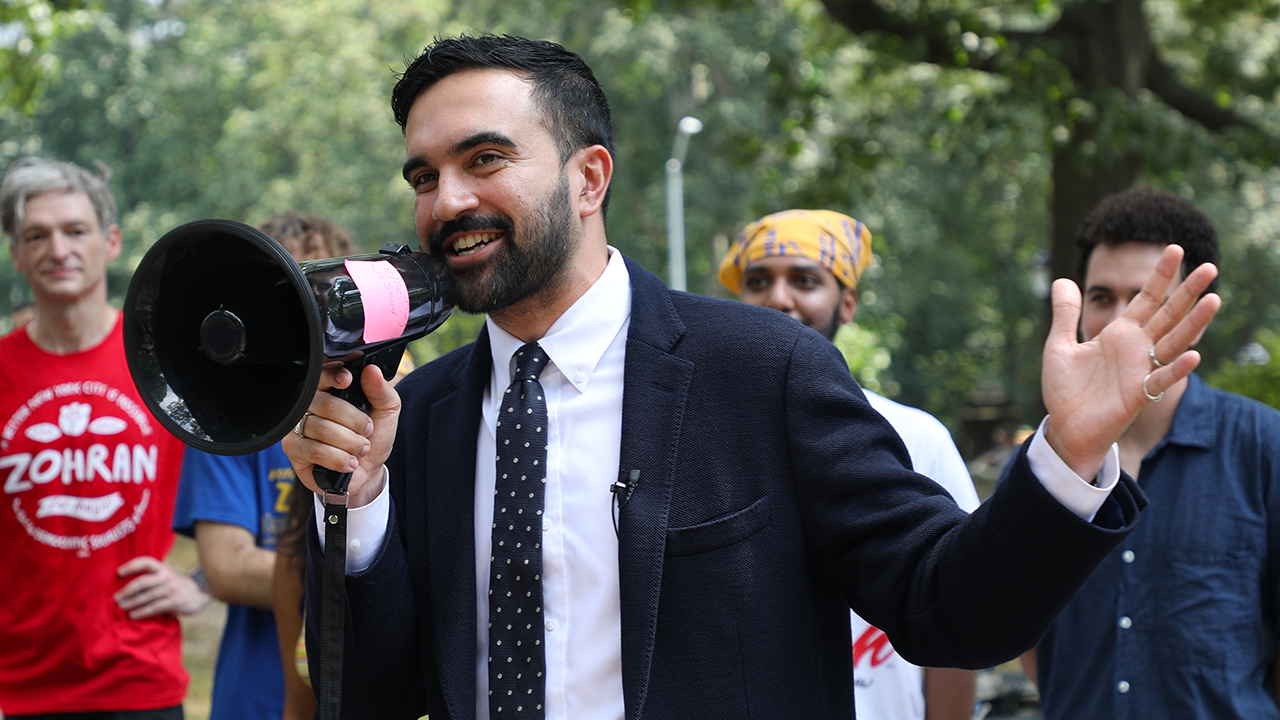One might assume that enrolling in a Hmong studies class would entail learning about the Southeast Asian people’s culture and history. But in Minneapolis, high schoolers are instead taught lessons demonizing capitalism—a system absent in communist China, where many Hmong live—as a pillar of white supremacy alongside slavery and genocide, according to course materials obtained by Defending Education.
The Hmong studies course, which requires social justice activism as part of a final project, is just one of the ethnic studies classes offered in Minneapolis Public Schools (MPS) that push an anti-racist agenda. Course materials newly uncovered by Defending Education and provided to the Washington Free Beacon show classes that describe ethnic studies as “an anti-racist tool,” featuring themes like “Decolonizing Education” and readings by anti-racist activist Ibram X. Kendi. Other classes are limited to black students and separate them by gender.
![]()
And starting with the class of 2025, students are required to take at least one of those ethnic studies courses, which, according to MPS, aims to “examine the concept of race as an organizing construct in US society.”
Defending Education’s findings should, perhaps, come as no surprise given MPS spent over $2 million in 2022 to incorporate “ethnic, racial, and cultural diversity” into the K-5 math curriculum. Minneapolis’s ethnic studies courses, however, could soon have statewide influence if other school districts use them as a template—legislation signed into law by Gov. Tim Walz (D.) requires every high school in the state to offer at least one ethnic studies course beginning next fall.
Minneapolis offers a variety of classes other districts could lean on, though they vary between schools. Those include American Indian, and Race & Identity studies, both of which list Stamped: Racism, Antiracism, and You by Kendi as required reading, as well as an introduction course for middle schoolers.
![]()
![]()
There’s also an introduction class for high schoolers in which students will learn how “Ethnic Studies is an anti-racist tool,” and how to “identify the kinds of structural inequalities that are part of K-12 institutions,” according to the course description. A prerequisite for that class, “Intro to Urban Education,” lists themes like “Race, Identity & School Experiences,” “Indigenous Education,” “Black Lives Matter at School,” “Language Justice,” and “Decolonizing Education.”
![]()
![]()
One class “lifts up the voices and perspectives of Chicanxs/Latinxs to tell their own his-stories and her-stories” of “everyday resistance,” according to the course description. Other courses teach case studies “centered around counter-narratives of communities of color” and “the history of unequal systems of power and privilege and how they have been used to silence members of the queer community.”
![]()
![]()
![]()
But the course materials Defending Education uncovered for the Hmong studies course provides perhaps the best window into the Minneapolis school system’s approach to ethnic studies classes. In one section, “Power Struggles and Resistance,” the class centers on the “Pillars of White Supremacy,” complete with a diagram equating capitalism with slavery and on par with war and genocide. The lesson also points to an article by Andrea Smith, a former University of California professor who resigned after facing accusations that she faked her Cherokee heritage.
![]()
Part of the class’s final assignment requires students to engage in “Youth Lead Participatory Action Research”—a convoluted name for social justice activism. It involves students identifying a problem perpetuated by “institutions and the logics of white supremacy” and proposing solutions to “an authentic audience.” There’s no indication the topic must center on the Hmong people.
![]()
Other sections explore why “black lives matter,” and claim white people in the United States “are the dominant group that profits and benefits from race and racism.” One slide quotes Stokely Carmichael, a former Black Panther Party leader who has praised Adolf Hitler, saying, “Racism gets its power from capitalism. Thus, if you’re anti-racist, whether you know it or not, you must be anti-capitalist.”
![]()
Supplemental resources for the class include the article “Five Faces of Oppression,” which cites Karl Marx to argue that “[e]xploitation uses capitalism to oppress.”
![]()
Defending Education senior director of strategic initiatives Paul Runko said the Minneapolis ethnic studies curricula and requirements represent a growing trend across the country and match those found in Milwaukee, Denver, Boston, and California.
“Parents across the country need to be alert to ethnic studies in schools because if it is not in their child’s school yet, it is coming,” Runko told the Free Beacon. “Schools should unite children around shared values and academic excellence, not divide students by race and perceived oppression status. In a time when test scores are so low across the board, schools need to get back to classrooms that promote a high quality, non-political education for all students.”
Minneapolis, in fact, is in the process of revising its ethnic studies courses to adhere to state social studies standards adopted in 2021. The school system told Defending Education some classes have already been updated while others have been teaching the same material since 2019.
MPS didn’t say which courses have been updated, but its website states, “Ethnic Studies courses are one part of our equity work and do not replace efforts to transform all Social Studies courses.”
The school district did not respond to a request for comment.
Read the full article here






